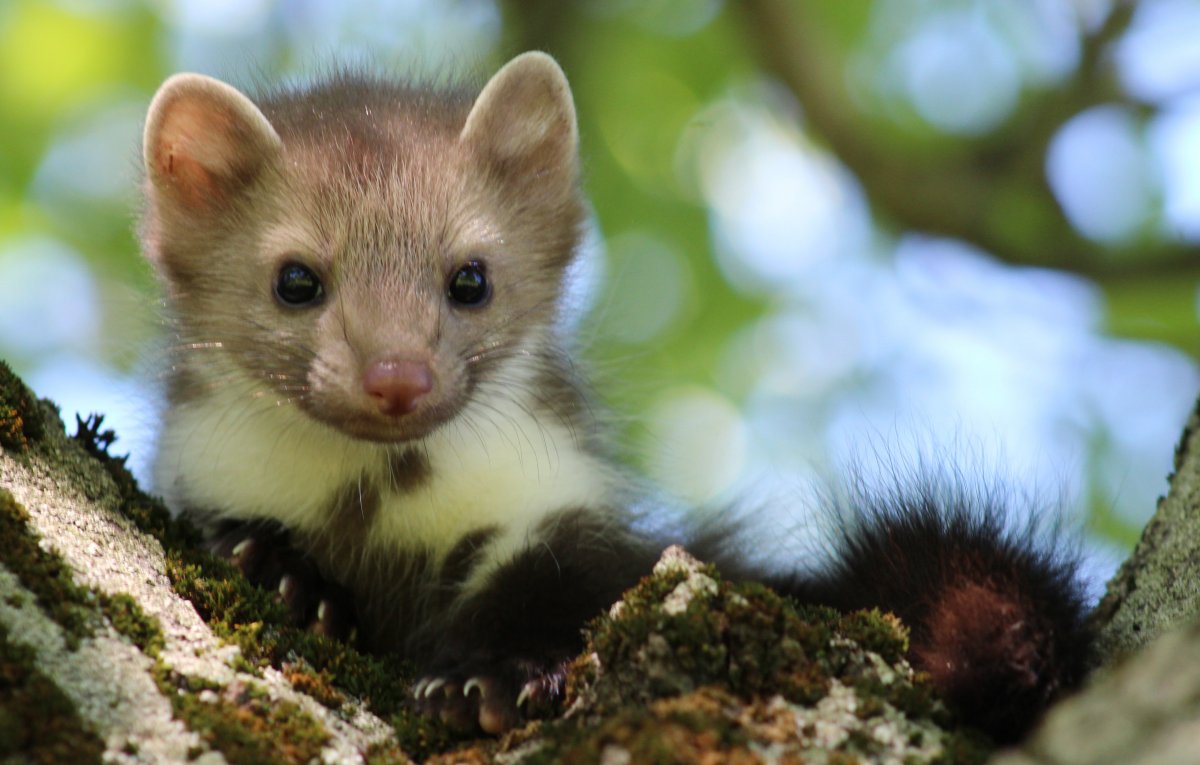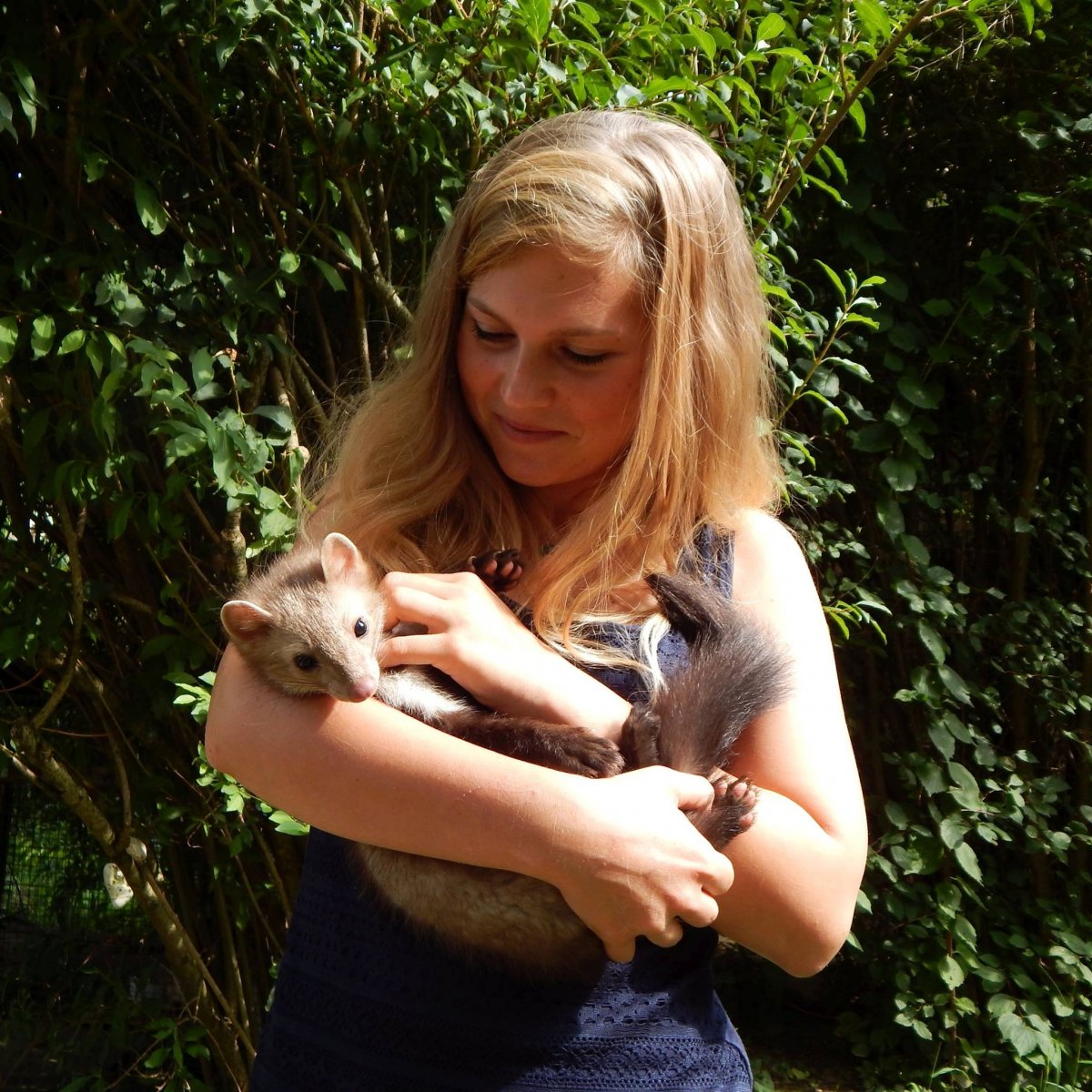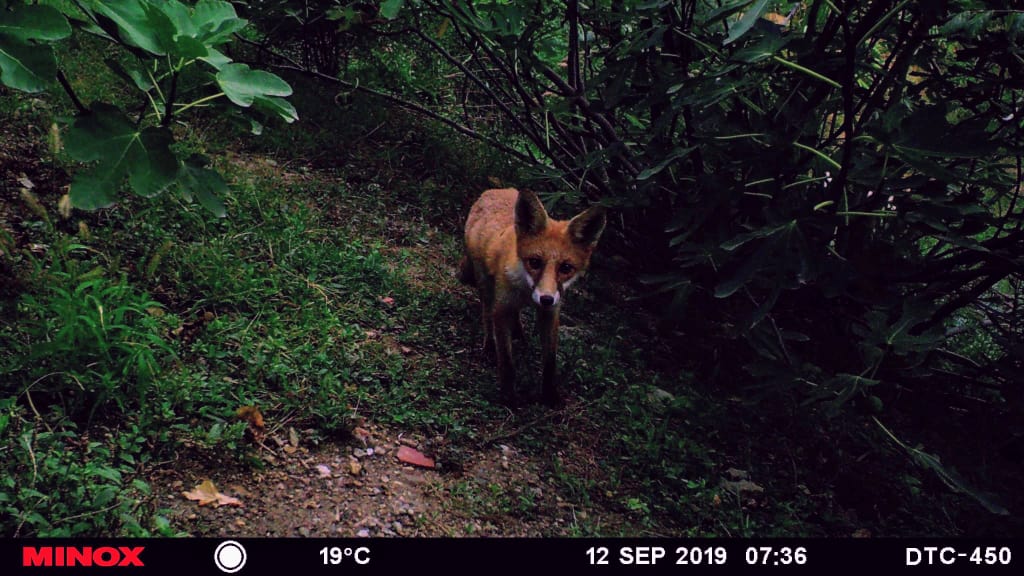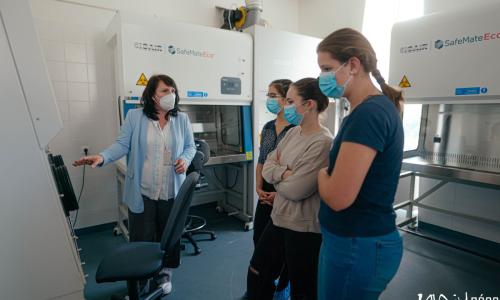PREDATORS AND VIRUSES
2024. March 16.
Zsófia Lanszki studied biology BSc at the Faculty of Sciences, University of Pécs. While continuing her studies at the MSc programme, she started researching the feeding habits of carnivorous mammals and joined the Virology Research Group as well. Now she is researching the viruses of Hungarian predators. She won the support of the New National Excellence Programme for her research not so long ago (she chose the virological examination of otters as her topic). She won special and first prizes at the National Scientific Students’ Association Conference as well as the Pro Scientia Gold Award for her achievements. On weekdays, she can be found in the laboratory but she spends her weekends roaming outside in nature.

What kind of predators do you study? Foxes, jackals…
And a couple others: martens, stoats, polecats, wildcats, and otters...
What is your method of research?
We work in collaboration with other universities. Other researchers work with roadkill collected in national parks, they dissect them and for example look at their stomach contents for data on feeding habits, but they collect organ samples as well, we work with those.
What are you doing? What is your goal?
We can conduct directly focused screenings for viruses, but we are searching for new viruses as well with the help of new molecular biology methods. Recently, we found two new viruses in otters, we studied foxes too, and now I am planning on starting the virological research of jackals.

What did you find?
We successfully found Hepatitis E virus in fox feces. There are only a handful of researchers studying the virology of carnivorous mammals in Hungary, however, many do research on their ecology, which provides a great opportunity for running further complex tests on these species.
What could be the result of all this? Foxes are very cunning and cute animals, we can see them in the city almost every day as they raid the trash cans and carefully sneak between cars.
Foxes do not pose a virological threat to humans, they are treated against rabies. Canine distemper is one of the viruses dogs get vaccinated against, so that is not necessarily a danger source either.
How normal is your lifestyle? Do you just work and study?
I work and study but the two are intertwined, I will write my thesis based on my findings in my work. I have been looking forward to this since I was young. I live a normal life though.

Did you want to study predators since you were little?
Yes; and I got to do so here at the UP’s Virology Research Group. My work will hopefully supplement the gaps in the scientific knowledge in this field in Hungary.
What are your goals?
I like studying and working in Pécs, I plan to stay here. The first step is to get my PhD, and then I hope I get to work on something similar at the University later on. I love my work, every day brings something new.

What changed in your attitude towards predators since your childhood? What was the idea and what is the reality?
My father studies these animals from an ecological perspective. When I was young, the only pet we had was a dog, but they brought orphaned predator cubs to us every spring. They most commonly brought martens, but we raised a golden jackal pup once. As they reached sexual maturity, they became feral and left in autumn. That is how it is supposed to be, our goal was never to keep them, but to merely raise them and reintroduce them to nature. This is how my admiration began, and I am glad I can work with these species and that I get to understand them better.




